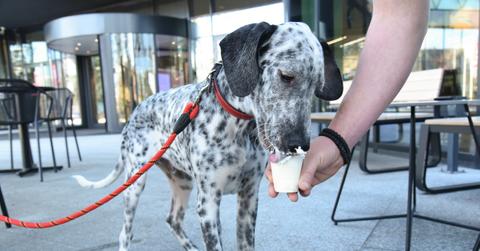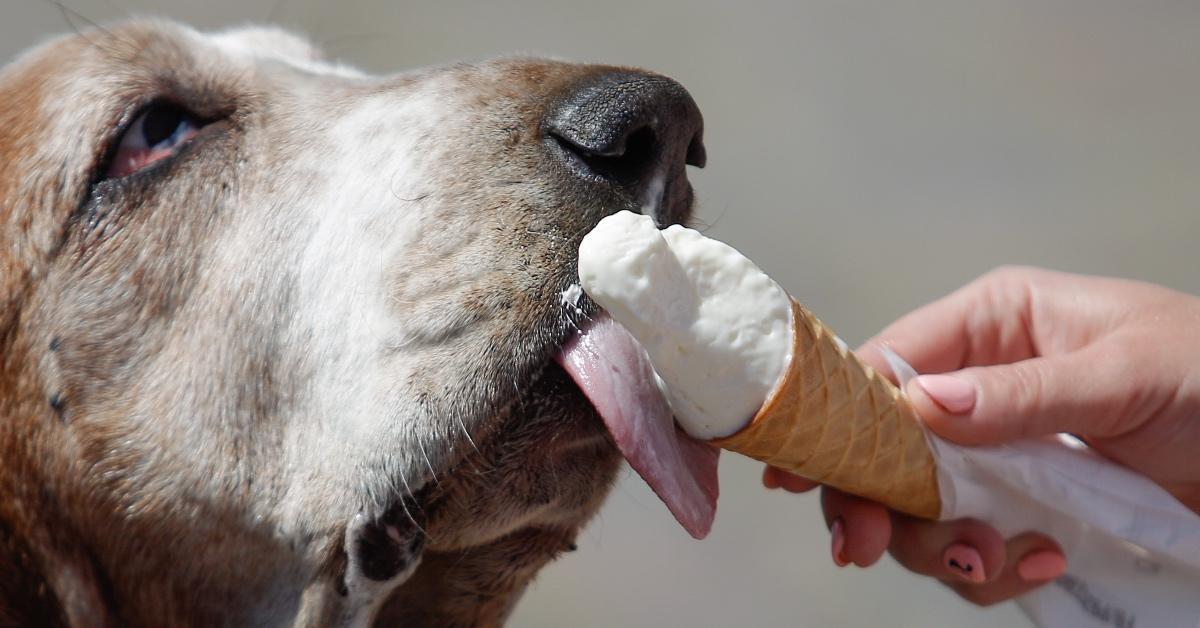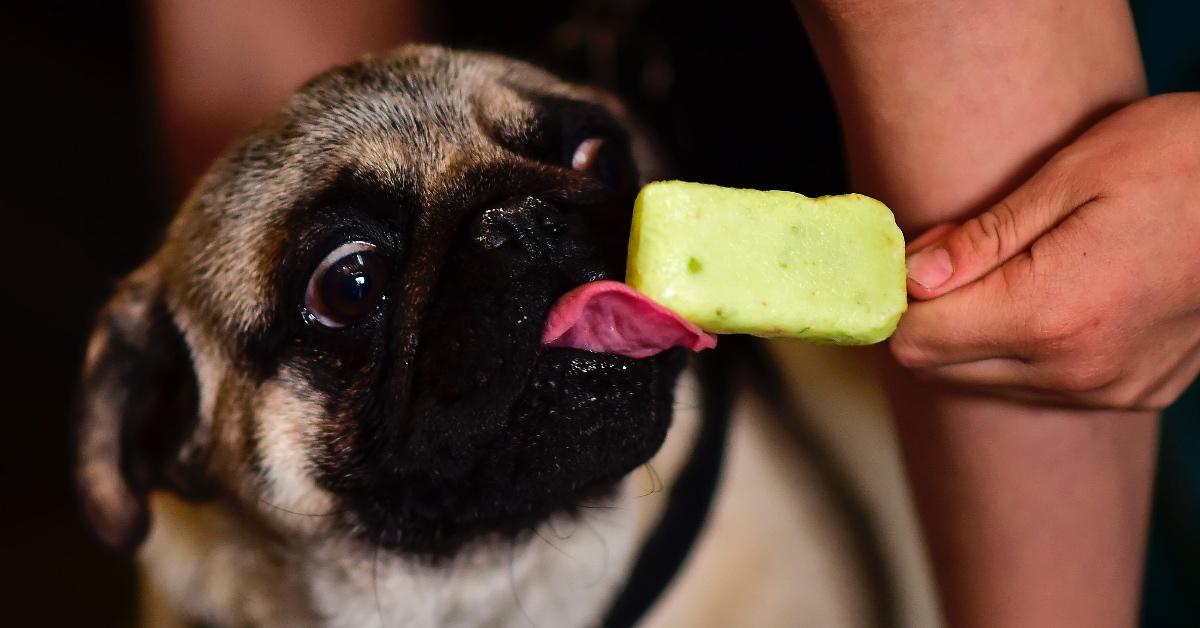Can Dogs Eat Whipped Cream? The Potential Dangers of "Pup Cups" and More
Many coffee shops offer small cups of whipped cream for dogs accompanying humans.
Published April 25 2024, 12:00 p.m. ET

It may seem like a fun treat for your hard working animal companion or a cute social media "hack," but giving your dog a cup of whipped cream (or doggy ice cream), sometimes known as a "pup cup," can be detrimental to their health. There are plenty of sustainable DIY dog treat ideas that are safer for your dog and more ethical than dairy-based treats.
So, let's investigate what happens when your dog indulges in a "pup cup" of whipped cream to ensure both the short- and long-term health of your companion.

Can dogs have whipped cream?
There are many things inherently wrong with giving your dog dairy-based whipped cream. As veterinarian toxicologist Renee Schmid tells Daily Paws, some dogs may react to consuming whipped cream by vomiting, having diarrhea, or becoming gassy.
Indeed, dogs can be lactose intolerant, and too much whipped cream carries the additional risk of excess weight gain for your dog. Even if you discovered a sugar-free whipped cream to share with your pup, you put them at risk of xylitol poisoning.
For dogs without diabetes, who aren't already overweight, who don't suffer from pancreatitis, or who don't otherwise have sensitive tummies, one pro-dairy veterinarian tells The Dodo that dogs can have whipped cream as an occasional treat.
However, the unnecessary and immense risks that dairy may bring to your dog make it clear that you should avoid dairy-based treats like whipped cream.
Many foodies recognize the dairy industry's cruelty and instead opt for non-dairy whipped cream. However, thickening agents like xanthan gum, sugary sweeteners and syrups, and unknown ingredients like "natural flavors" may pose just as many risks to your dog's health.

Are Starbucks puppuccinos safe for dogs?
As the name implies, Starbucks' "Puppuccino" is marketed as a dog-friendly version of the coffee giant's drinks. According to Reader's Digest, the puppuccino drink consists of flavored whipped cream made from heavy cream and vanilla syrup.
For obvious reasons, based on the ingredients, this is a completely unsafe drink for dogs despite the cuteness of a dollop of whipped cream on your dog's nose.
Despite the Puppuccino cup being small to humans, it's a meal unto itself for dogs, according to Reader's Digest, composed entirely of milk fat and sugar.

Can dogs have ice cream?
We've said it before and we'll say it again: milk products and dogs' digestive systems are incompatible. Especially if the ice cream in question contains chocolate, even a quick bite could prove to be toxic to your beloved companion.
As with whipped cream and the puppuccino, ice cream is loaded with sugar (often with artificial sweeteners) and other potentially hazardous ingredients like alcohol. As Purina explains, these toxic ingredients can cause vomiting, diarrhea, and other scary side effects for your dog, making ice cream a treat to avoid.
While it may look adorable on social media, with some influencers purporting to make dog-friendly ice cream alternatives, remember that dairy and dogs do not mix.